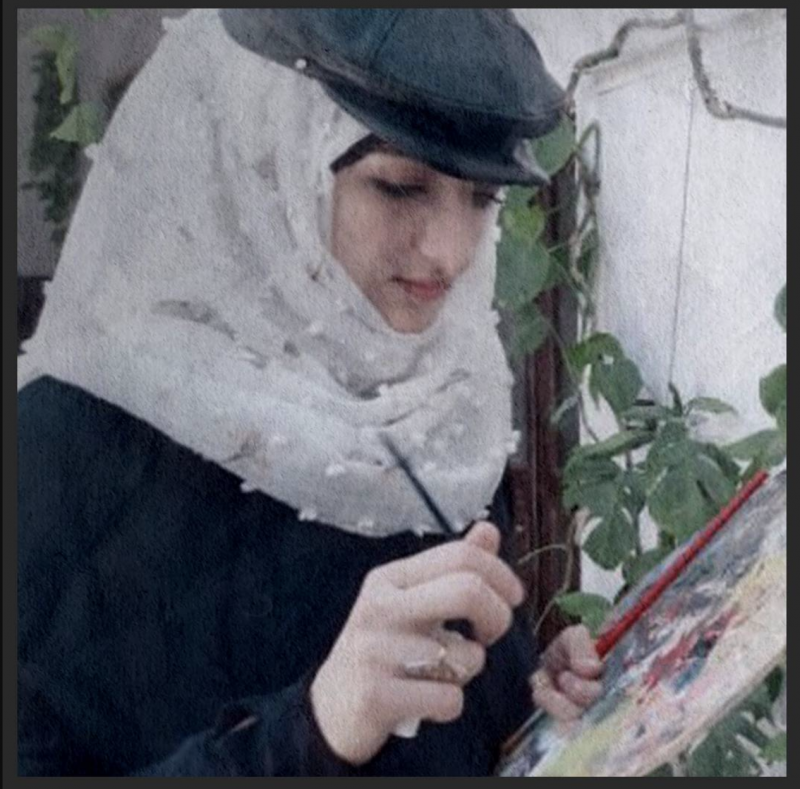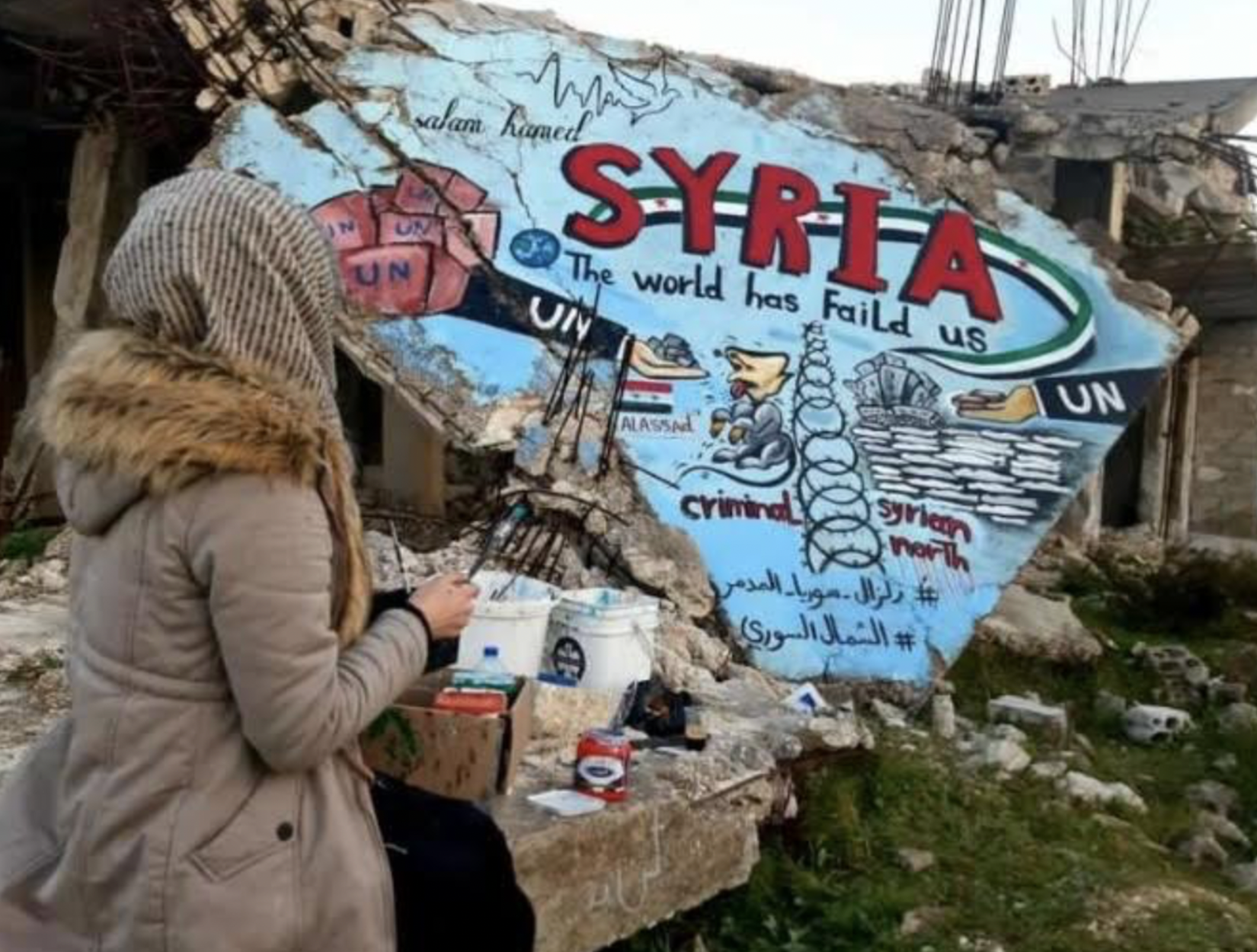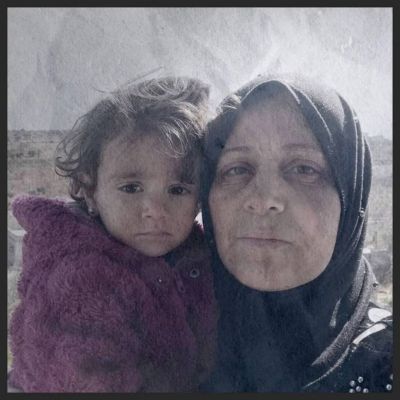
Salam, painter in the countryside of Idlib, the last stronghold of the Syrian opposition to the Assad regime. (Courtesy of Salam)
It seemed like yet another curse among many.
After more than a decade of bombing by Bashar al-Assad's regime and its Russian ally, the seizure of much of the area by the jihadist group Hay'at Tahrir al-Sham (HTS), as well as economic and humanitarian crises, Syria's rebel-held northwest was hit yet again — this time by the earthquake at dawn on Feb. 6.
In areas of northwestern Syria controlled by HTS or Ankara-backed rebels, at nearly 3,700 people have died, based on a preliminary death toll on 17 February.
Left to their own devices, the White Helmets, a local civil defense group, are still trying to free survivors from the rubble. Meanwhile, residents have been held hostage for several years by the Syrian state and Russia's partial blockade of humanitarian convoys into the area.
This week, L'Orient Today will give the floor to residents of opposition-held northwestern Syria, where 4 million people live, most of them internally displaced by 12 years of conflict.
Today, the testimony of Dalal, an employee of the Zamarrod Center, which works on capacity building among women in the town of Salqin, Idlib province.
Testimony collected by Noura DOUKHI.
 Salam painted on houses destroyed by the recent earthquake in Syria. (Courtesy of Salam)
Salam painted on houses destroyed by the recent earthquake in Syria. (Courtesy of Salam)
"I woke up [Friday] morning with a mixture of fear and panic that has followed me every day since the earthquake. I try to forget about the magnitude of the disaster, the number of victims and injured that is only increasing, but the situation remains embedded in my mind.”
“The first thing I do is check my social networks to follow the news about the people trapped under the rubble. It makes me angry. Because the world has let us down ... Then I get depressed and pray for the people affected and for this tragedy to end.”
“But life must go on. I got ready for work with a smile on my face despite the fear I feel, which only subsides in the evening when I join my children at home. I force myself to go out.”
“I turned my brush into a weapon. I walked to demolished houses that were filled with life and dreams that are now shattered. And I painted on their walls. Through my paintings and murals, I translate into images what I feel. I also shed light on important issues such as the humanitarian issues we live with, whether local or global, and the suffering of Syrians during the war, such as those detained or displaced by the conflict.”
“Painting on walls allows for aesthetic, cultural and powerful messages to be delivered while creating interaction with people and drawing the world's attention. This idea came to me at the beginning of the revolution with the anti-regime phrases that were starting to be written on them. On the demolished walls, I document the crimes of the Assad regime against his people and his country.”
"After painting, I came home and kissed my children. When the earthquake happened, at first we thought it was the regime bombing us, as we are used to. We live in Jisr al-Shughur, in the countryside of Idlib, which is continuously targeted. We were displaced in 2012 when the Syrian regime took control of it. But after its liberation, we returned to live there despite the danger.”
“That night, I realized a few minutes later that it was an earthquake with the abnormal movement the house was making. I rushed to the bedroom of my children— ages 5, 9 and 12. They were crying and screaming in fear. I remember seeing all their toys fall. I hugged them and told them this was God's destiny. Then we prayed together. We fell to the ground because we were unable to keep our balance.”
“Once the house stopped shaking, we rushed outside without knowing where to go. We got into the car and drove away from the cracked buildings that had been previously damaged by the regime's bombing. On the way home later, they asked me several times if the earthquake was really over. They didn't want to come back home for fear that it would happen again."
